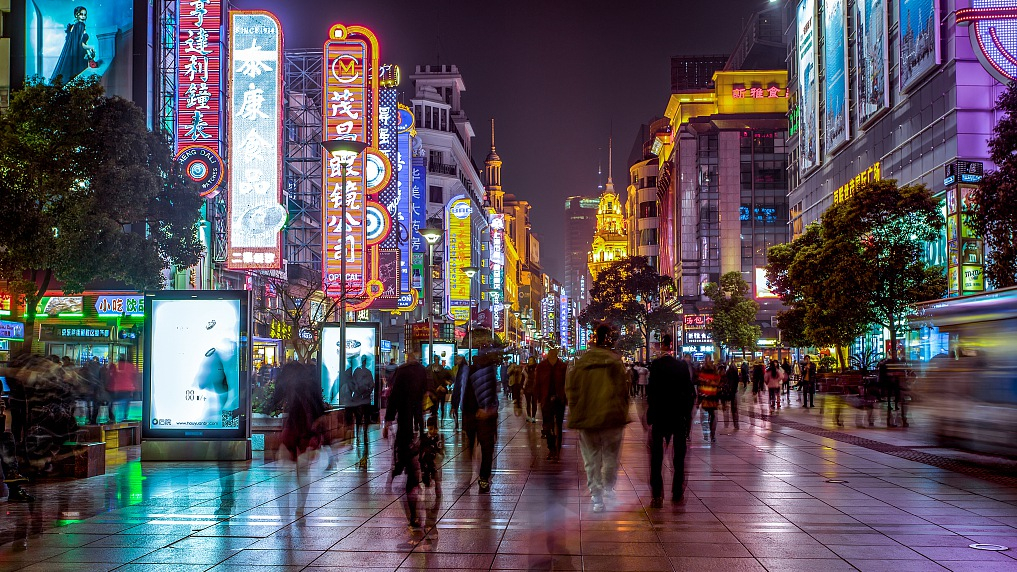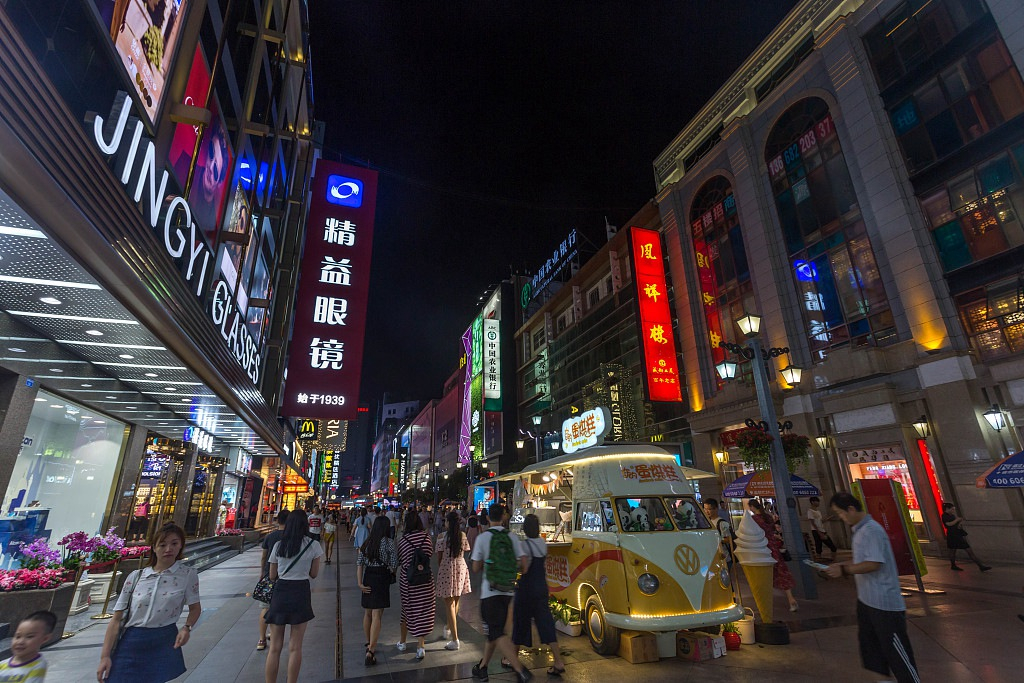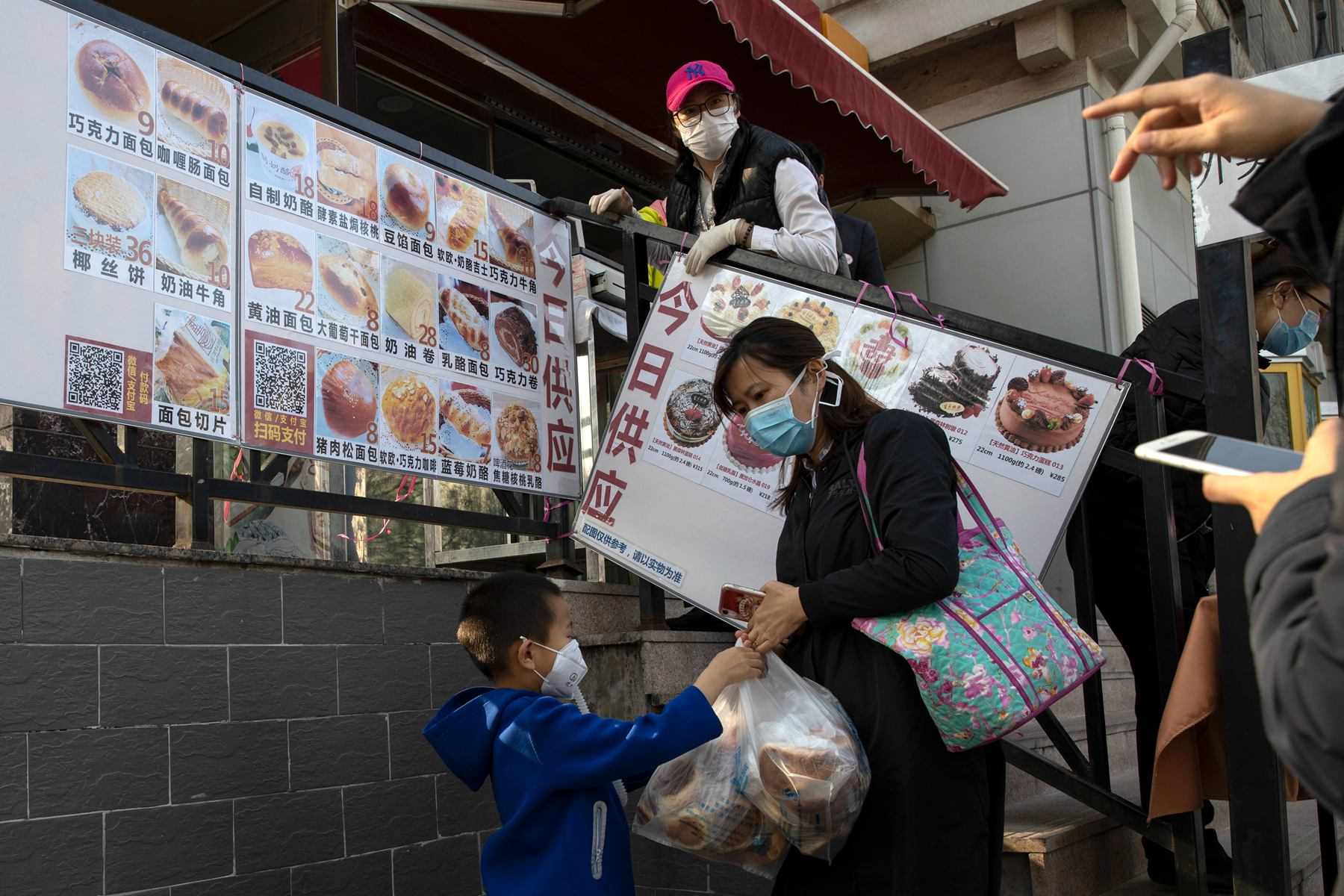
With the COVID-19 outbreak brought under control in China, business resumption has been brought up on the agenda. Consumers, after staying in quarantine for two months, are itching to return to commercial centers for shopping and entertainment.
In many Chinese cities, shopping centers and entertainment commercial areas have opened with lines of people waiting to enter restaurants and shops during peak hours and on weekends.
The commercial centers in many cities around the country have resumed operations tp over 50 percent. For instance, in Chengdu, the provincial capital of southwest China's Sichuan Province, more than 80 percent of the commercial centers have reopened, and in Chongqing, nearly all the commercial centers have resumed business with customers flow exceeding half of the normal amount, as per the local commerce commission.
However, with people gradually returning to their usual consumption tendencies, containing a possible new outbreak in COVID-19 infections becomes a new challenge facing Chinese society.

File of Xichunlu shopping center in Chengdu, Sichuan Province on August 27, 2017. /VCG
File of Xichunlu shopping center in Chengdu, Sichuan Province on August 27, 2017. /VCG
According to a Xinhua News report, most of the commercial centers have set up rules to prevent the pandemic from re-emerging. Colored health codes, temperature measurements and frequent disinfecting are all required in most areas.
In Xichunlu Pedestrian Zone, one of Chengdu's most renowned commercial centers, infrared thermometry machines cover nearly every corner so that temperatures of all customers can be monitored at any time.
In Jinan's shopping center Shimao Plaza, all the delivery food served by restaurants must be traceable in all stages of production including the cooking, packaging and delivering.
In Shanghai and Beijing, restaurants started to promote the usage of chopsticks and spoons specifically to serve food in order to avoid cross contamination, while the customers in the restaurants have to seat separately with at least one empty table between them.
"Their rules are really strict. Even my husband and I would have to eat separately at different tables," said Zhou, a restaurant customer who feels safer with such strict requirements.
The colored health code is also a must. After scanning a QR code with a mobile phone, each customer's recent travel history can be acquired, and only those considered having no risk of COVID-19 exposure may be admitted in the commercial areas.

A worker takes orders outside a bakery in Beijing on Monday, March 23, 2020. /AP
A worker takes orders outside a bakery in Beijing on Monday, March 23, 2020. /AP
Meanwhile, personal ID and contact phone number registration are also required in some shopping centers.
But risks do exist. There are also stores requiring only temperature measurement without other procedures. In some gymnasiums in Shenyang City, of Liaoning Province, there are no strict disinfection or ventilation measures, which does not meet the standard of local requirements, according to the Xinhua report.
Besides the reopening of the physical stores, more commercial centers are trying to boost consumption by providing other forms of "shopping," such as adopting online live streaming sales or virtual reality shopping.
A shopping mall in Chengdu promoted their online stores ahead of the previously scheduled time, from June to March, in order to cope with the pandemic. In Beijing, Joy City shopping center in Xidan has organized at least 20 live streaming promotions for its brands.
There are also other policies to help boost consumption as well.
The government of Zhejiang Province has recently issued an instruction, suggesting companies to adopt a flexible working schedule and offer 2.5-day weekends to the employees if possible, so that people may have more time for shopping and entertainment.
All in all, it seems the time is right for society to return to its normal self.